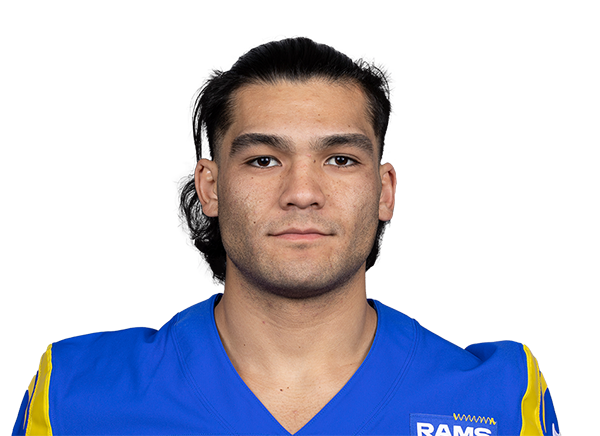The Compensatory Pick Rule for Retired Players

Editor’s Note: This is a Member Corner article written by Mike Beckley. We hope to see more from Mike in the future.
If you like creative rules in your dynasty leagues, this is a rule you may want to consider for your next dynasty startup. In dynasty leagues, some veterans are put out to pasture and have almost no value once they hit a certain age. I’m not sure the origin of this rule, but I was introduced to it several years ago. There are different variations to the rule of course, but the compensatory pick system I use is as follows:
“Compensatory Picks for Retirees: Owners will be awarded a compensatory pick if their player retires while producing at a high level. If a player retires and their fantasy point total after 17 weeks is at the top 7 for their position, you will be awarded a 1st round compensatory pick in the following year’s rookie draft. This would be the last pick of the round. (1.13 in 12 team leagues) If they finish in the top 14 at their position, you will be awarded a 2nd round compensatory pick (2.13 in 12 team leagues). If they finish top 21 at their position, a third round compensatory pick will be awarded (3.13 in 12 team leagues) Unlike the NFL, compensatory picks can be traded as a regular pick.”
[inlinead]In my 10-team leagues that have this rule, for all positions the pick levels are: top 7/14/21 at their position gives picks 1.11/2.11/3.11. Other leagues use a system of top 10/20/30 for QB/RB/WR and top 5/10/15 for Tight Ends will give the same picks. You can make variations to these tiers depending on how often you want compensatory picks to be given. You can include a fourth or fifth round compensatory pick if you want. Surprisingly, players do not retire at the top of their game very often. There were also a few tight ends that finished a top 30 at their position and were unsigned the following year. I don’t have records of when they decided to retire.
Here is the history of compensatory picks given in the last nine years.
2014: Kyle Orton finished as QB21. This gave pick 3.11 in three of my leagues that use the compensatory pick system.
2014: Eligible older players: Marshawn Lynch, Peyton Manning, Fred Jackson, Frank Gore, Jason Witten and Antonio Gates all finished top 7, 14, or 21 at their respective positions and could still give compensatory picks if they retire before the rookie drafts.
2013: Tony Gonzalez finished as PPR TE4 and gave pick 1.11 in ten team leagues.
2010: Brett Favre was QB28 for his final retirement.
2009: Kurt Warner finished as QB15.
2007: Brett Favre was QB6 for his first retirement.
2006: Tiki Barber was RB6 when he retired.
I dug through the fantasy stats of the last nine years and couldn’t find any other players who retired at such a high level. I could have missed a player or two, but you get the idea that this rule isn’t a big game changer. I’ve found the people in my leagues like this rule and players like Steven Jackson, Jason Witten and Antonio Gates have a little more trade value and get moved around more because of it. There also is a timing issue with retirements and when your rookie draft is planned. Frank Gore could be unsigned going into the 2015 season and then retire after you have already drafted. In this case, he would give the 2016 3.11 (or 3.13) pick.
Tie Breakers: There are different tie breakers you can use in the event that two players retire after the same season and give a compensatory pick in the same round. This could happen in 2014 if Frank Gore, Fred Jackson and Kyle Orton all retired as top 21 options at their respective positions. In that case, you would give the compensatory picks 3.11, 3.12, and 3.13 at the end of the third round.
The tie breaker that I use is, “the player with the higher points gives the higher pick regardless of their positional finish.” For example, if Antonio Gates retired as TE3 and Peyton Manning retired as QB4, Manning would give the higher pick (1.11 instead of 1.12) since a top quarterback will score more points than a top tight end in most settings.
Other tie-breakers include:
1) make the player with the higher positional finish give the higher pick in a tie-breaker or
2) rank the positions based on importance and the tie-breaker goes to the position that has the most value in the league settings. You can make an argument that replacing a starting quarterback or tight end is easy in start one quarterback or tight end league. Again, I like to use the total points because it is straight forward, but can understand going with another option.
Retired players: You may want to implement a rule about what to do with players who have retired. Since Favre came out of retirement and produced at a high level, this could create some havoc if you didn’t have a provision for this. There was also a time where Tony Gonzalez and Kurt Warner had some interest from teams to come out of retirement. You can allow an owner to keep the retired player on their roster if they want to burn up a roster spot. In very large roster leagues, you could have them released to waivers to be fair. I would recommend the retired player goes into the free agent pool and can be drafted by anyone during the rookie draft or picked up on waivers afterwards.
It may not be fair to implement this rule (without provisions) to a league that is already established, because the Peyton Manning, Tom Brady, Antonio Gates (and others) owners may get an advantage with future end of the first round pick. If you really wanted to implement the rule to an established league, you could say players currently over 28 or 29 are not eligible for compensatory picks. I would think this would keep anyone from having a significant advantage. Again, this rule is best for a start-up, but it really adds a fun trading element.
The compensatory pick rule for retired players adds a little fun to holding onto veterans who otherwise are untradeable. Don’t be afraid of this rule messing with your drafts, because you can see that only six total compensatory picks have been given in the past nine years and only three first round compensatory picks have been given. If you like your leagues to have something different but not completely out of the box, you may want to consider it. If you have any questions or want discuss this more in the forums or on twitter find me at @BeckleyNFL.
Does your league account for retiring players? If so, how do you deal with it. Post your comments below!
[ad5]


































































